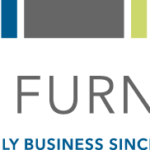What is Private Label Furniture?
Private label furniture involves products crafted by one company but sold under the brand or label of another company. The two collaborate in order to customize the product. This business model enables retailers or brands to offer a unique product range without significant investments in manufacturing or design. Retailers can customize designs, materials, and finishes to create distinctive furniture lines, allowing for immediate and flexible responses to market trends and consumer preferences. Private label furniture spans categories such as sofas, chairs, tables, and home furnishings, providing flexibility for businesses to focus on branding, marketing, as well as customer relationships.
What is a Contract Furniture Manufacturer?
A contract furniture manufacturer producing customized furniture based on specific criteria set forth by their clients. Their expertise enables them to design, fabricate, and deliver furniture solutions that align with the unique needs and specifications of each client.
What is the Size of the Contract Manufactured Furniture Market?
The global contract furniture market exhibited a value of USD 140.17 billion in 2022 and is poised for significant growth, with a projected compound annual growth rate (CAGR) of 5.1% from 2023 to 2030, reaching USD 209.47 billion by 2030. Additionally, estimates suggest that the market surpassed USD 60 billion in 2022 and is anticipated to maintain a growth rate exceeding 5% CAGR from 2023 to 2032, surpassing USD 104 billion by 2032. In the United States, the contract furniture and furnishing market reached USD 14.49 billion in 2023 and is forecasted to exceed USD 23.80 billion by 2031, growing at a CAGR of 6.4%. Globally, the contract furniture market is expected to surpass a valuation of approximately USD 95 billion by 2030. In summary, the global contract furniture market is estimated to grow from around $140 billion in 2022 to over $200 billion by 2030 and over $100 billion by 2032, with the U.S. market expected to increase from $14.5 billion in 2023 to $23.8 billion by 2031.
What are The Different Types of Furniture in the Contract Furniture Market?
The primary types of furniture found in the contract furniture market encompass chairs, tables, sofas, case goods (furniture with drawers, cabinets, etc.), and other miscellaneous items. According to search results, chairs and seating constitute the largest product segment, comprising over 40% of the contract furniture market. In terms of end-use applications, sectors such as offices, hospitality (including hotels, restaurants, and bars), education (comprising schools and universities), healthcare (encompassing hospitals and clinics), and other commercial settings like government buildings, financial institutions, entertainment venues, and co-working spaces are prominent. Notably, the office/corporate sector stands as the largest end-use application, contributing approximately 60% to the contract furniture market. Unlike typical residential furniture, the contract furniture market offers specialized, commercial-grade furniture tailored specifically for these professional and institutional settings, emphasizing customization to meet the unique requirements of each application.
How to Find a Private Label and Contract Furniture Manufacturer?
Finding a private label and contract furniture manufacturer involves a coherent approach. Start by defining your specific requirements, including design preferences and quality standards. Conduct thorough research through online directories such as Find My Manufacturer, industry associations, and referrals to create a shortlist of potential manufacturers. Always remember to verify their credentials, certifications, and manufacturing capabilities, and request samples or portfolios to assess their work. If possible, visit their manufacturing facilities to gain firsthand insights. Engage in discussions about terms, pricing, and additional services, and check references and online reviews for feedback from previous clients. Finally, negotiate contracts and establish clear communication channels to ensure a successful partnership with a manufacturer that aligns with your furniture project.










